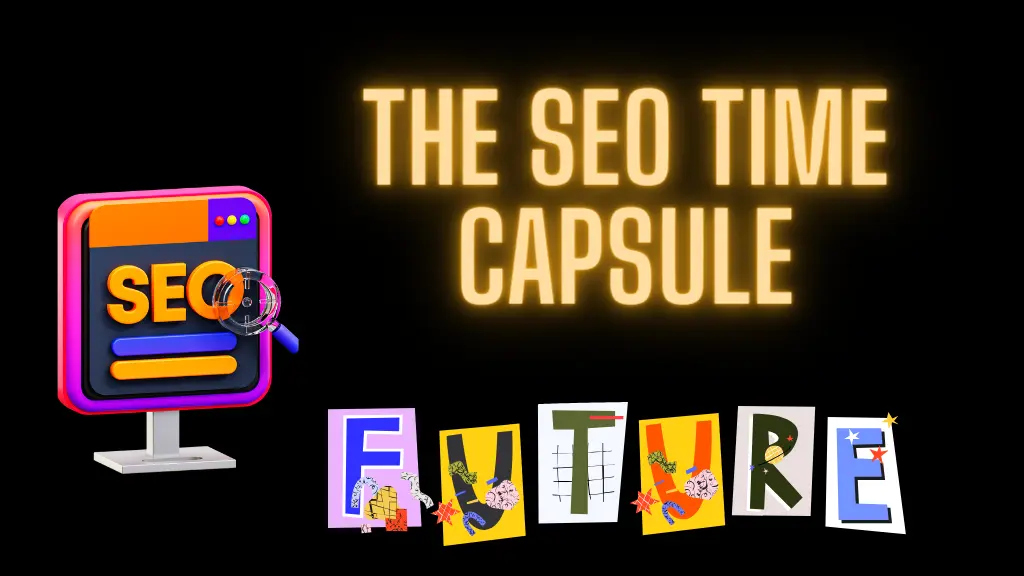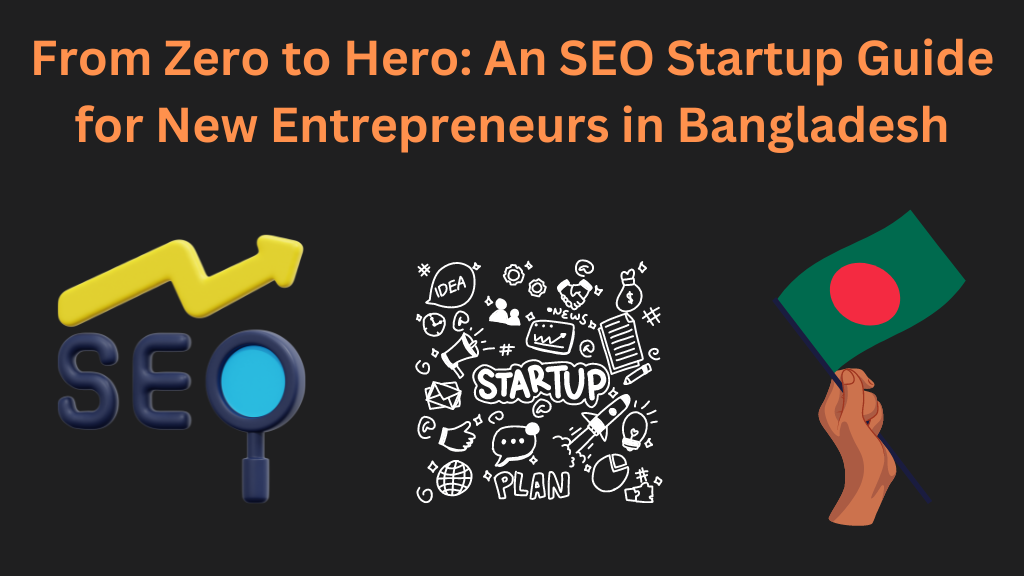Ever wonder what the future holds for today’s digital pioneers? Remember the wild predictions of the early internet days? Dial-up speeds faster than a blink, anyone? While some were hilariously off-base, others became the cornerstones of our digital world. So, what groundbreaking innovations await the risk-takers and early adopters of today? Join us on a thought-provoking journey through the SEO Time Capsule!

Table of Contents
ToggleA Glimpse at the Present: Digital Trends and the SEO Imperative
The digital landscape of today is characterized by several dominant trends:
- Mobile-first everything: Smartphones have become the primary access point for information, necessitating mobile-optimized websites and SEO strategies.
- The rise of voice search: Conversational technology like voice assistants is changing how people search, demanding voice-optimized content.
- Content is king (and queen): High-quality, engaging content remains the cornerstone of SEO success, with diverse formats like video and infographics gaining traction.
- The data privacy conundrum: Stringent data privacy regulations are reshaping how businesses collect and utilize user data, impacting SEO practices.
In this dynamic environment, keeping up with SEO advancements is no longer optional; it’s an imperative for survival. SEO pioneers who fail to adapt risk being buried under the ever-growing pile of online content.
Reflecting on the Past Decade: Lessons from the SEO Frontier
The past decade in SEO has been a whirlwind of change. We’ve witnessed the rise and fall of algorithms, the explosion of mobile usage, and the increasing focus on user experience. Key milestones include:
- The Penguin and Panda updates: These Google algorithm updates penalized low-quality websites and spammy link-building practices, emphasizing the importance of high-quality content and natural backlinks.
- The emergence of mobile-first indexing: Google prioritized mobile versions of websites for ranking, making mobile optimization crucial.
- The rise of local SEO: “Near me” searches gained prominence, highlighting the need for local businesses to optimize their online presence.
The lessons learned from these past advancements are invaluable: prioritize quality content, adapt to user behavior, and embrace change as the only constant.
Charting the Course: Predictions for the Future of SEO
As we peer into the glass ball of the coming decade, here are some potential predictions for the future of SEO:
- AI-powered SEO: Expect AI to play a bigger role in keyword research, content creation, and website optimization.
- Semantic search understanding: Search engines will gain a deeper understanding of the meaning and intent behind user queries, requiring content that aligns with that intent.
- Personalization and micro-moments: SEO will become hyper-personalized, catering to individual user needs and intent in specific micro-moments.
- The continued rise of visual search: Image and video optimization will become even more critical for ranking well.
- Focus on user engagement: Beyond just content, websites will need to prioritize user engagement metrics like dwell time and bounce rate.
These are just a few possibilities, and the reality may unfold in ways we can’t even imagine. But one thing is certain: the future of SEO will be defined by innovation, adaptability, and a deep understanding of how users interact with the digital world.
Mastering the Voice: Optimizing for Conversational Search
The rise of voice search technology like Siri and Alexa presents both challenges and opportunities for SEO. Here’s how to optimize your content for voice queries:
- Focus on natural language: Write content that mimics how people speak, using conversational phrases and long-tail keywords.
- Answer user questions: Anticipate user queries and provide concise, informative answers within your content.
- Optimize for local searches: If you have a local business, ensure your voice search optimization aligns with local SEO best practices.
- Embrace schema markup: Use schema markup to help search engines understand the context and structure of your content for better voice search representation.
Mobile-First Mindset: Creating a Seamless User Experience
With mobile dominating online searches, a mobile-friendly website is no longer a luxury but a necessity. Here are some tips for mobile optimization:
- Ensure responsive design: Your website should adjust seamlessly to different screen sizes and devices.
- Prioritize fast loading speeds: Mobile users are impatient, so optimize your website for quick loading times.
- Simplify navigation: Make it easy for users to find what they’re looking for on your mobile site.
- Use large, tappable buttons: Make sure buttons and links are easily clickable on touchscreens.
User Experience: The Unsung Hero of SEO
Search engines are increasingly prioritizing websites that offer a positive user experience (UX). Here’s how to make UX a pillar of your SEO strategy:
- Create clear and concise content: Avoid jargon and overly technical language.
- Use intuitive design principles: Make your website easy to navigate and understand.
- Optimize for readability: Break up text with headings, subheadings, and bullet points.
- Incorporate visuals strategically: Use high-quality images and videos to engage users.
Content that Converts: Embracing Diverse Formats
While text remains important, content formats like video, infographics, and podcasts are gaining traction. Here’s how to optimize different formats for SEO:
- Video SEO: Include relevant keywords in titles, descriptions, and transcripts.
- Infographic SEO: Use alt text and descriptive captions for images.
- Podcast SEO: Optimize episode titles, descriptions, and show notes for relevant keywords.
Local SEO: Conquering the “Near Me” Landscape
For local businesses, optimizing for “near me” searches is crucial. Here’s how to dominate local SEO:
- Claim and optimize your Google My Business listing: Update your information, add photos, and encourage customer reviews.
- Build local backlinks: Get links from other local websites and directories.
- Target local keywords: Research and use keywords specific to your area and target audience.
- Engage with your community: Respond to online reviews, participate in local events, and build relationships with other local businesses.
Data Privacy: Navigating the Regulatory Maze
Data privacy regulations like GDPR and CCPA are impacting how businesses collect and use user data. Here’s how to ensure compliance while optimizing content:
- Be transparent about data collection: Inform users about what data you collect and how you use it.
- Obtain user consent: Get explicit consent before collecting and using user data.
- Respect user privacy choices: Allow users to access, manage, and delete their data.
- Stay updated on data privacy regulations: Regularly review and adapt your practices to comply with evolving regulations.
Conclusion: Embrace the Unknown and Stay Ahead of the Curve
The next decade of SEO will be an exciting journey filled with challenges and opportunities. By staying informed, embracing innovation, and adapting to user behavior, SEO pioneers can continue to navigate the ever-changing digital landscape and secure their place at the forefront of online success. Remember, the key is to be adaptable, proactive, and user-centric in your approach. So, buckle up, fellow SEO adventurers, and prepare to explore the uncharted territories of the digital frontier!





